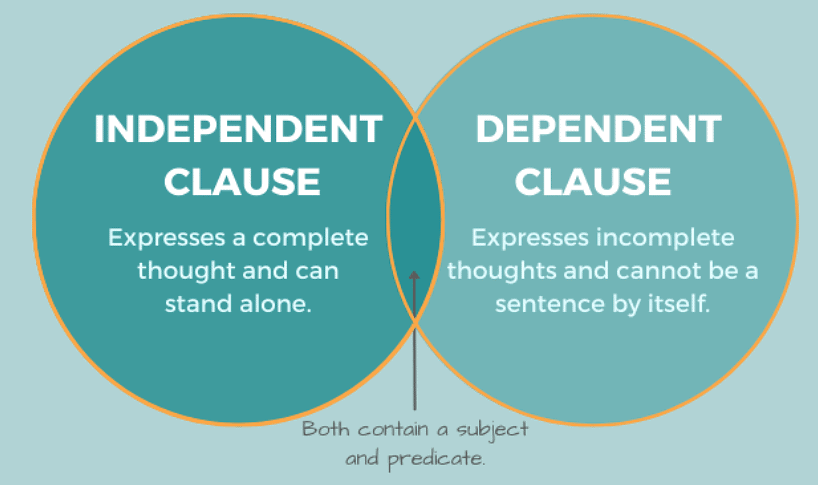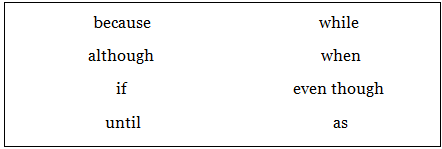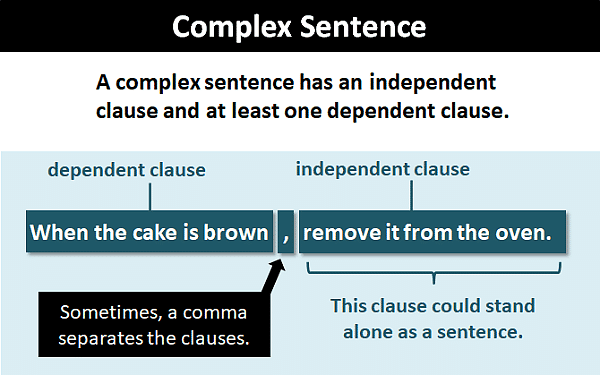Notes: Complex Sentences | Basic Grammar for IELTS PDF Download
Importance of Complex Sentences in IELTS
Understanding complex sentences and knowing how to write them is crucial for IELTS.
The examiner will not award you above a band 5 for 'grammatical range and accuracy' if you cannot write them or if you have a very limited ability to write them.
The Marking System
This is the marking criteria for a band 6 for grammar:
- Uses a mix of simple and complex sentence forms
- Makes some errors in grammar and punctuation but they rarely reduce communication
So you must have a mix of complex sentence forms, though some errors in them are acceptable.
If, for example, you learned a couple of complex structures and used the same ones throughout your essay, this would not demonstrate a 'mix'.
For the higher band scores, you will need to show a greater range and more accuracy.
What are Complex Sentences?
A complex sentence is a sentence with one independent clause and at least one dependent clause. It works best when you need to provide more information to explain or modify your sentence’s main point. Complex sentences are easy to spot as they often use subordinating conjunctions like because, since, or until to connect clauses.
(a) Complex sentences are one of the four types of sentences based on structure (simple, complex, compound, and compound-complex). Their distinction is that they contain a dependent clause; only complex sentences and complex-compound sentences have these.
- A dependent clause, also known as a subordinate clause, is a clause that cannot stand alone as a complete sentence. Without an independent clause, a dependent clause is just a sentence fragment.
Incorrect- When I grow up
Correct- When I grow up, I’ll use complete sentences. - One of the most common types of complex sentence is conditional sentences, which discuss imaginary situations, often using an if-then structure. In conditional sentences, one clause is true only if both clauses are true.
What are Independent and Dependent Clauses?
Clause: A clause is a group of words with a subject and verb.
Independent and dependent clauses are the two main types of clause in English, and every clause is either one or the other.
- Independent clause: can work alone as a complete sentence
- Dependent clause: (also known as a subordinate clause) needs to join with an independent clause to form a complete sentence.

Independent: Next Tuesday will be my first day at my new job.
Dependent: If the interview goes well, next Tuesday will be my first day at my new job.
Simple vs. Complex Sentences
- A simple sentence is any sentence with only one independent clause. Any sentence with more than one clause—including a complex sentence—cannot be a simple sentence.
- Interestingly, you can sometimes combine two simple sentences to create one complex sentence, as long as the two sentences are logically related and you add a subordinate conjunction.
- Simple sentences:
Troy ate a giant cookie. He got a stomachache. - Complex sentence:
After Troy ate a giant cookie, he got a stomachache.
Types of Complex Sentences
Complex sentences have three types:
- Adverbial Clauses
- Relative Clauses
- Noun Clauses
In the following sections, there is a brief explanation of how to construct each of these with some examples.
1. Adverbial Clauses
Adverbial clauses answer questions such as how? why? when? where?
They are made by connecting an independent clause and a dependent clause with a subordinating conjunction.
Here are some common subordinating conjunctions that make complex sentences:

For example (the subject are bold and the verb are in single quote).:
Some experiments on animals 'give' us the wrong result because animals’ bodies 'are' not exactly the same as our own.
S'V' subordinating conjunction S'V'
Some experiments on animals give us the wrong result
---- INDEPENDENT CLAUSE ----
...because animals' bodies are not exactly the same as our own.
---- DEPENDENT (SUBORDINATING) CLAUSE ----
In adverbial clauses, however, it is possible to put the dependent clause before the independent clause. In fact, more often than not, this is the case.
When you do this though, you MUST put a comma after the dependent clause (a comma is not needed when the independent clause comes first):
Because animals’ bodies 'are' not exactly the same as our own, some experiments on animals 'give' us the wrong result.
subordinating conjunction S'V', S'V'
Here are some further examples. Notice how in some sentences the dependent clause comes first, in others it is second. This is your choice:
Even though he arrived late, he did not apologize.
Pollution will get worse if car emissions are not reduced.
While the number of people going to Japan increased, the number going to the UK decreased.
I don't know when he will arrive.
2. Relative Clauses
Like adverbial clauses, relative clauses are made up of an independent clause and a dependent clause.
However, these clauses have a different use. Relative clauses are used to modify a noun. In other words, to give more information about it.
The relative pronouns who, which, that and where are used to do this, and the relative clause is placed after the noun it is modifying.
For example:
Animal experimentation, which is legal in most countries, should be banned.
Animals experimentation 'should be' banned.
---- INDEPENDENT CLAUSE ----
which 'is' legal in most countries
---- DEPENDENT (RELATIVE) CLAUSE ----
Unlike adverbial clauses, the dependent clause (which is the relative clause) can break up the independent clause - the dependent clause just needs to go after the noun, wherever that is.
Notice also that there are two Subject-Verb combinations. This will always be the case with complex sentences as there are two clauses.
Here are some more examples. The dependent (relative) clause is in single quote, the independent clause is in bold, and the noun being modified is underlined.
- 'A library is a place' where you can borrow books.
- Global warming is a problem 'that must be solved.'
- Obesity, 'which is the condition of being overweight,' affects millions of children.
- A person 'who breaks the law' must face serious penalties.
3. Noun Clauses
Noun clauses are probably the most difficult to master of the complex sentences, so we'll focus here on the most common and easiest form which you will probably have used many times.
A noun clause answers the question 'who?' or 'what?'. Unlike relative clauses, which come after the noun, noun clauses come after the verb.
For example:
- What do you think about corruption?
I think that corruptions is wrong and that those guilty of it should be punished.
In this example, there are two noun clauses, and they are the object of the verb 'think'.
The noun clauses are the dependent clauses because they do not make sense on their own. They need the independent clause "I think...".
I 'think'
---- INDEPENDENT CLAUSE ----
that corruption 'is' wrong
that those guilty of it 'hould be punished'
---- DEPENDENT (NOUN) CLAUSE ----
Here are some more examples. The dependent (noun) clause is in 'single quote', and the independent clause is in bold:
- I agree 'that capital punishment must be abolished.'
- I hope 'that the government intervenes to resolve the situation.'
- I believe 'that experimentation on animals is unethical.'
It is common to omit 'that' when speaking. For example, we can say:
- I believe experimentation on animals is unethical.
How to Make a Complex Sentence?
Although conditional sentences get complicated, complex sentences in general have fairly easy grammar rules. As long as you’re using the right subordinate conjunction, you have to worry only about commas in complex sentences.
Whether or not to use a comma depends on which clause comes first:
- If the dependent clause comes first, place a comma between it and the independent clause.
- If the independent clause comes first, no comma is needed.
Here’s a couple of complex sentence examples to illustrate:
- When Thanos attacked Earth, where were the Eternals?
- Where were the Eternals when Thanos attacked Earth?
Subordinating Conjunctions in Complex Sentences
- The word used to link an independent clause to a dependent clause is called a subordinating conjunction.
- The most common subordinating conjunctions are:
although, because, before, even though, if, since, until, when - In these examples of complex sentences, the subordinating conjunctions are shown in bold.
(a) We can never obtain peace in the outer world until we make peace with ourselves. (Dalai Lama)
(b) Wise men speak because they have something to say. Fools speak because they have to say something. (Athenian philosopher Plato)
(c) Even though he's a moron, I supported Tyson Fury. (Boxer David Haye)
|
18 videos|54 docs
|
FAQs on Notes: Complex Sentences - Basic Grammar for IELTS
| 1. What is the importance of complex sentences in the IELTS exam? |  |
| 2. How do complex sentences improve the overall quality of an essay in the IELTS exam? |  |
| 3. Can using complex sentences in the IELTS exam help to achieve a higher band score? |  |
| 4. Are there any specific techniques for constructing complex sentences in the IELTS exam? |  |
| 5. Can using too many complex sentences negatively impact the score in the IELTS exam? |  |























